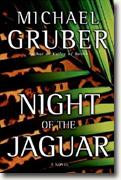 The words came into his head. Out of nowhere. Like someone else said them. The voice wasn’t even his, but sounded like someone doing a bad imitation of him; slightly nasal with a raspy piercing deepness.
The words came into his head. Out of nowhere. Like someone else said them. The voice wasn’t even his, but sounded like someone doing a bad imitation of him; slightly nasal with a raspy piercing deepness.
He lounged on his screened front porch, shielded from the eyes of passersby. Not that he knew any of them, really. Just neighbors. The same faces passed his house regularly, fulfilling the daily routine stamped into their lives, in this case by the dogs they walked. He envied them this regularity, at least from a distance. It gave them the power of rooted steadiness, able to withstand gusts of windy life without falling over.
He, on the other hand, felt more like a pile of leaves, able to take any shape and move with the wind, but having no particular form or solidity. He felt like the foam on top of the waves of change and time. For that reason he liked his name, Dorn. It sounded like a part of a decoration. Just part. Not even his name was complete in itself.
“What does it want to do?” Was the question directed at him or from him? He’d always thought of himself as an object, a human form rather than a unique person. So he could be the “it” in question, like the hamster whose owner asks aloud in its presence what it wants to do. He could imagine the neighbors wondering why he didn’t rake his leaves or mow his grass much. Why did he sleep so late before starting his day? He smiled, imagining himself under observation to learn about the perplexing and perhaps dangerous behavior of slightly deviant humans.
But he’d also approached the whole human race from the same detachment he applied to himself. To his misanthropic thinking, most people had no free will. Certainly not as a group. They did what they had to do to survive, or compete, or follow the group.
How many dared break all the “rules” to be free of them? Most desperately “wanted” to fit in, even if they disagreed with the norm. Wasn’t that the way of the world, to be the best behaved lab rats on the block? Wasn’t modern life a conglomeration of activities born of doing what’s healthy, right, smart, well researched, popular, chic, compassionate or efficient?
People thought it was free will to shop when and for what you wanted. Sure, like it would be free will to snort coke when you “wanted”, or sleep when you’re tired or eat when you’re hungry. No. To him people had about as much free will as cats or birds. Clink their bowl and they come running for more treats. The “It” in question could mean humanity flowing along the luscious and complex Cinerama of cause and effect, survival and conformity. Freedom is an elusive thing.
Thoughts continued to burst like microwave popcorn. Body, mind, systems of language, culture, society, history, chance; all burst with answers to explore. All seemed to operate in systems of their own, with particular patterns of cause and effect, like an IT without will. Letting the scope of the question grow, it now encompassed something beyond humanity and earth. What if “it” in question is the universe. What does IT want to do? Is the universe conscious of doing anything? How can it be? So how can it want to do something?
This thinking began to give an answer, not so much an answer as another kind of question. Why was Dorn able to ask these questions? If all aspects of the universe, from individuals to groups to cosmos, were operating under definable and determinate rules, what did it imply about his ability to wonder at the unanswerable nature of the questions? Gazing with wonder at snow falling, or leaves swirling in a gust of wind, or the peaceful purring of a sleeping cat, or the powerful ephemeral majesty of the setting sun; were those activities just another cog in the wheel of cause and effect?
Sometimes Dorn wanted to do things. Yes, he himself actually wanted to do something, without consideration for their usefulness or conformity. He wanted to sob for hours at the horror of the human race’s continual violence to other creatures, torture, abuse of power, manipulation of lives for personal gain, blind selfishness, pettiness, laziness, destruction of the planet. He included himself in that mass of insidious perfidiousness. He also wanted to hug and kiss anyone he met on the street, to break the ice of distance and normality, to start a new spark of spontaneous love. He wanted to reward with the greatest possible emotion anyone and everyone who struggled to make the world a little better place.
But he was usually paralyzed into doing what’s normal; smile, go about your business, leave the worrying to someone else. Sometimes he wanted to stop doing anything, because so much of “normal” life involved conforming to patterns of tacit destruction and manipulation and evasion of naked truth. He felt trapped, unable to escape his own involvement, his complicity in such a world. How could he fight it without becoming further caught in the vicious cycle? However, these thoughts embarrassed him, because of their wimpiness. He could imagine someone saying, “Get off your ass and do something about it!”
He quickly grew overwhelmed. How could he fathom what the universe wanted to do or how to determine what is truly free will? A fuse burned out in his mind. That often happened to him. He’d break open a huge subject, even with friends, and by the time they had gotten deep into the discussion, he’d poop out, move on, wanting to do something else. He had a feeling it was an escape, a kind of laziness, to give up on the big questions. But what the heck, everyone else did it.
So he finished his last swig of beer. Out of habit, the idea of a walk came to mind. According to numerous studies, walking is good for you, and it passed some time in a way others would accept as normal. So off he went, to be healthy and normal.
That’s what IT wanted to do for now, at least. But the question would haunt him toward further exploration.
 This novel has it all; murder mystery, philosophy, psychology, contemporary geo-political ideas, clash of ancient and modern culture, you name it.
This novel has it all; murder mystery, philosophy, psychology, contemporary geo-political ideas, clash of ancient and modern culture, you name it. 
